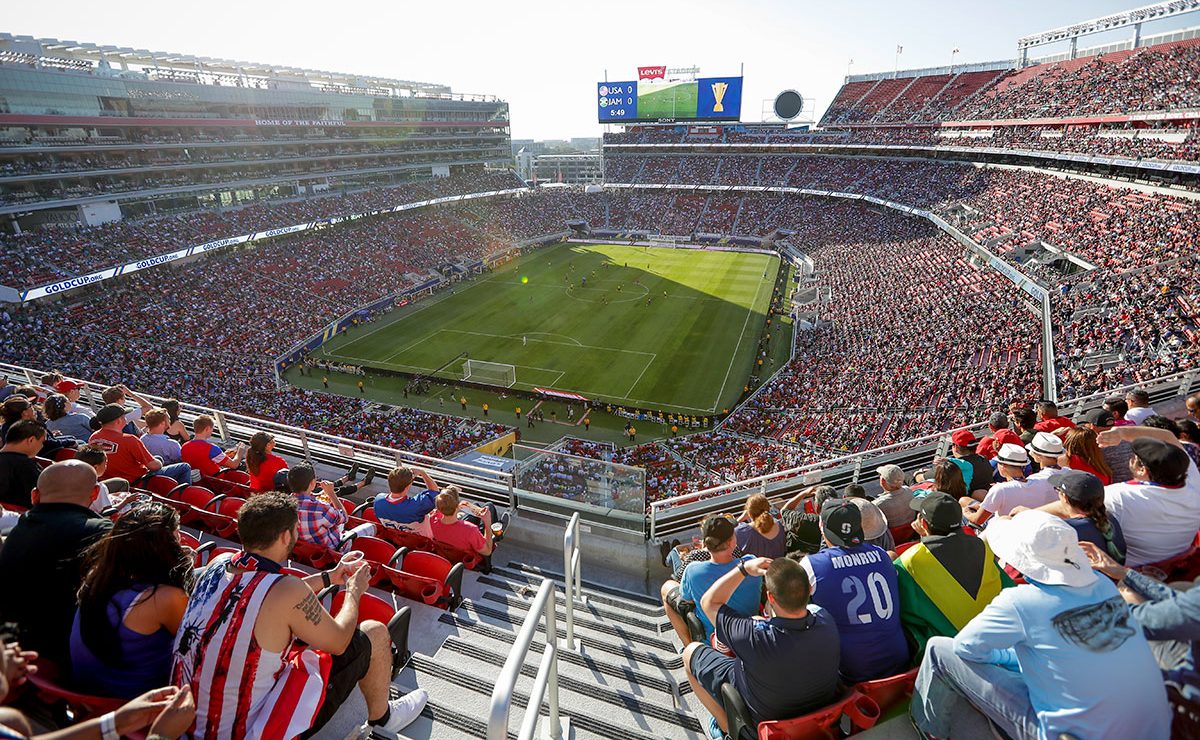Levi’s® Stadium Moves to Next Stage of Bid Process to Serve as Host Venue for 2026 FIFA World Cup
The United Bid Committee announced today that the San Francisco Bay Area is one of 32 locations across North America still in contention to serve as Official Host Cities for the 2026 FIFA World Cup™. The 32 potential host cities include four in Canada, three in Mexico, and 25 cities in the United States. The full list of cities is available at www.ussoccer.com.
“On behalf of our great Bay Area community partners and the Cities of San Francisco, Santa Clara and San Jose, all of us at Levi’s Stadium are thrilled about our inclusion in today’s announcement of the 32 potential North American host cities for the 2026 FIFA World Cup,” said 49ers President Al Guido. “We thank the United 2026 Bid Committee for this opportunity and look forward to working with them as we engage our region into the united bid strategy and vision throughout the next phase of our response.”
“As we move to the next stage of the bid process, we’re even more confident we have everything needed to deliver the largest, most compelling FIFA World Cup™ in history and help accelerate the growth of soccer across North America and around the world,” said United Bid Chairman Sunil Gulati. “We have more than double the number of cities required to stage matches in 2026. We have a vision for growing the game and engaging fans as never before. Our biggest challenge will be finding ways to honor the enthusiasm of all the people across Canada, Mexico and the United States through the development of our united hosting concept.”
During the next stage of the bid process, the United Bid Committee will integrate the 32 potential host cities into the united bid strategy and vision, as well as work with local officials to finalize the hosting documents required by FIFA. Representatives from the 32 potential host cities will travel to Houston, Texas during the week of Nov. 13 for a working session with the United Bid Committee.
“We received applications from 41 cities across Canada, Mexico and the United States and narrowed the list after a comprehensive review of each of the communities and facilities. The 32 cities that we have identified as potential host cities, on their own and together, are prepared to welcome soccer fans from around the world. They are more than capable of helping fulfill the shared vision and ambition of FIFA and the United Bid in shaping the future of soccer in North America,” said John Kristick, Executive Director of the United Bid Committee. “While not every city will move forward as a potential host city, we were so impressed by all the applicants that we will continue to engage with all the cities as part of our hosting strategy and we will welcome the opportunity to work with FIFA to further expand our hosting concept to ensure the broadest possible impact for this spectacular event.”
The Official Host City selection process takes into account various factors such as city profile, stadium and support facilities (training sites, hotels) and services (e.g., transportation). The United Bid Committee also looked at ways each city could contribute to a united hosting strategy for the 2026 FIFA World Cup™ including their contribution to the sport’s development and the United Bid’s vision – not only during the tournament, but in the eight-year build up and the social, economic, and environmental legacy.
Each of the 32 potential host cities features existing or already planned stadiums and other world-class infrastructure, meeting or exceeding the requirements outlined by FIFA. Additionally, the potential host cities reflect the vast geographic and cultural diversity of North America and share a commitment to using the once-in-a-generation opportunity of hosting the FIFA World Cup™ to welcome, entertain, inspire and empower the next generation of players and fans as never before.

